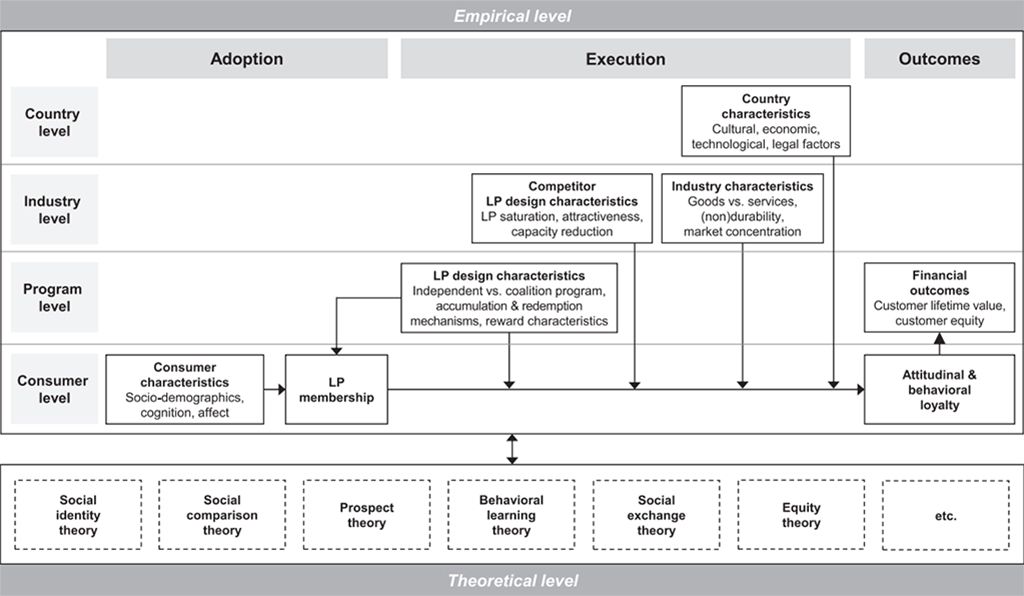. Loyalty programs offer rewards to consumers for purchasing and engaging with a brand on a recurring basis. These rewards can be tangible, such as discounts and vouchers, or intangible, such as granting them a particular status associated with preferential treatment (e.g., a “gold” membership).
“The origins of loyalty programs can be traced back to the 20th century when they started to emerge among airlines and retailers. […] Today, loyalty programs are a multi-billion-dollar business, and digitalization is pushing forward their evolution.”
Many studies have shed light on the why consumers join loyalty programs, how such programs should be designed, and what financial outcomes they have. However, research that reviews the accumulated knowledge in a holistic manner is sparse. To structure and consolidate existing knowledge, we provide a general overview of loyalty research, followed by an in-depth review of theories that have been used to explain phenomena related to loyalty programs; contexts in which these phenomena have been investigated; characteristics that have been studied; and methods that have been used to draw conclusions about the examined relationships. Based on this systematic review of what has been done, we outline an agenda for future research to stimulate further advancement of the field. In summary, we paint the most comprehensive picture of the field and develop a future research agenda to help advance the field further.
The comprehensive map of loyalty program research we developed provides a simplified overview of the different theories and concepts relevant to loyalty program research. On the one hand, loyalty program research can be distinguished based on the stage(s) to which it pertains, i.e., the adoption, execution, or outcomes of loyalty programs. On the other hand, loyalty program studies differ in their units of analysis and the levels to which the associated concepts relate.

Overview of Loyalty Program Theories and Concepts
Our review reveals that existing studies mostly rely on status-based, inertia-based, or relationship-based mechanisms to theoretically explain loyalty program-related effects, while multi-theoretical perspectives are rare. Loyalty program research focuses strongly on a few key industries, such as retail, airlines, and hotels, but lacks insights into the design and outcomes of loyalty programs in online and B2B contexts. Furthermore, we diagnose a need for more research on the impact of recent technological advances on loyalty program management. Artificial intelligence, augmented/virtual reality, smart displays, as well as mobile devices and applications hold the potential to reinvent the customer experience and increase loyalty program efficiency. These new technologies come with new challenges that have, so far, received little attention.
Full reference: Chen, Yanyan, Timo Mandler, and Lars Meyer-Waarden (2021), “Three Decades of Research on Loyalty Programs: A Literature Review and Future Research Agenda,” Journal of Business Research, 124, 179–197. https://doi.org/10.1016/j.jbusres.2020.11.057
Cite for: Loyalty program, customer loyalty, systematic literature review, TCCM review protocol, journal selection criteria, overview of loyalty program research (Figure 1), specific research gaps




